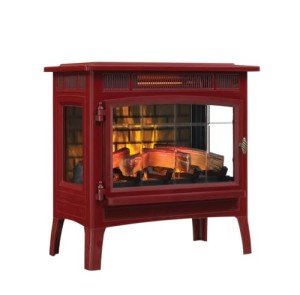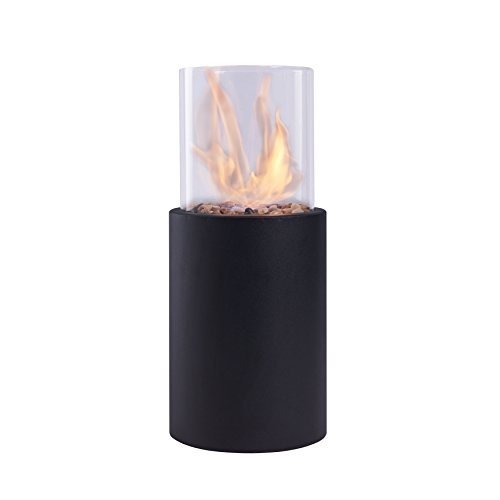cheap-fireplaces-online8899
cheap-fireplaces-online8899
See What Fireplaces And Stoves Tricks The Celebs Are Using
The Comprehensive Guide to Fireplaces and Stoves
Fireplaces and stoves (git.vegemash.com) have actually been important to human civilization for centuries, serving as a source of warmth, light, and convenience. These devices come in numerous kinds and have actually progressed over the years, dealing with varied preferences and technological advancements. This article supplies a useful overview of fireplaces and stoves, highlighting their types, benefits, upkeep tips, and installation factors to consider.
Kinds of Fireplaces
The world of fireplaces is rich and varied. Here are the most common types:
-
Wood-Burning Fireplaces:
- Traditional and lovely.
- Requires experienced wood and routine maintenance.
- Produces an enjoyable aroma and crackling sound.
-
Gas Fireplaces:
- Offer convenience and ease of usage.
- Readily available in vented and vent-free choices.
- More efficient and cleaner than wood-burning options.
-
Electric Fireplaces:
- Provide atmosphere without the need for a chimney.
- Easy to use with push-button control options.
- Can be utilized as a supplemental heat source.
-
Pellet Stoves:
- Use compressed wood pellets as fuel.
- Extremely efficient and environmentally friendly.
- Often equipped with thermostats for temperature control.
-
Ethanol Fireplaces:
- Utilize bioethanol fuel, making them portable.
- Do not need venting, which enables versatile placement.
- Produce a practical flame with minimal smoke.
-
Outdoor Fireplaces:
- Designed for outdoor settings; can be wood or gas-burning.
- Great for amusing and enhancing backyard looks.
- Often constructed from stone, brick, or metal.
Advantages of Fireplaces and Stoves
Incorporating a fireplace or stove into a home offers various advantages:
- Aesthetic Appeal: Fireplaces work as striking focal points in any room, including warmth and character to home decoration.
- Increased Property Value: Homes with practical fireplaces tend to have greater resale worths.
- Energy Efficiency: Modern fireplaces and stoves are created to be more energy-efficient, which can cause decreased heating costs.
- Backup Heating Source: In case of power blackouts, wood-burning and gas fireplaces can work as essential heating sources.
- Versatile Heating Solutions: Different kinds of fireplaces accommodate various heating needs and lifestyles, from comfortable atmosphere to efficient heating.
| Kind of Fireplace/Stove | Fuel Source | Efficiency Rating | Maintenance Level |
|---|---|---|---|
| Wood-Burning | Wood | Moderate | High |
| Gas | Natural gas/LP | High | Low |
| Electric | Electrical power | High | Very Low |
| Pellet | Wood pellets | High | Moderate |
| Ethanol | Bioethanol | Moderate | Low |
| Outdoor | Wood or gas | Moderate | Varies |
Maintenance Tips
Correct upkeep extends the life of fireplaces and stoves, guaranteeing safety and efficiency. Here are some vital suggestions:
-
Regular Cleaning:
- Wood-burning fireplaces ought to be cleaned after a full season of use to eliminate soot and creosote.
- Gas fireplaces need periodic assessment of the burner and vents.
-
Regular Inspections:
- Have chimney sweeps carry out annual inspections to identify clogs or structural damage.
- Inspect the seals and gaskets on gas systems to prevent leakages.
-
Fire Safety:
- Install smoke and carbon monoxide gas detectors in homes with fireplaces or stoves.
- Keep a fire extinguisher near the fireplace or range for emergencies.
-
Use Quality Fuel:
- For wood-burning units, constantly utilize experienced wood; avoid dealt with or painted wood.
- When utilizing pellets, guarantee they are kept effectively to avoid moisture absorption.
-
Handle Airflow:
- Keep vents and ducts clear to promote effective ventilation and airflow.
- Consider utilizing glass doors or screens to reduce debris and ash in the living space.
Setup Considerations
Installing a fireplace or stove requires careful factor to consider of several aspects:
-
Location:
- Choose a place that enables for appropriate clearance and ventilation.
- Consider the design of your home and the convenience of natural heat distribution.
-
Building Regulations and Permits:
- Check regional regulations relating to installations and required licenses.
- Engage a professional to make sure compliance with safety standards.
-
Fuel Type:
- Evaluate your fuel options based upon accessibility, cost, and ecological impact.
- If opting for gas, make sure existing gas lines can accommodate the brand-new home appliance.
-
Ventilation:
- Proper venting is essential for safety and performance, especially for gas and wood-burning systems.
- Speak with an expert to figure out the very best venting option.
-
Aesthetic Consideration:
- Select a design that matches your home’s interior.
- Consider mantels, surround materials, and colors that match your decor.
FAQs
What is the very best kind of fireplace for heating?
Gas fireplaces are normally more efficient for heating, while wood-burning fireplaces offer more ambient warmth.
How typically should I clean my fireplace?
Wood-burning fireplaces ought to be cleaned at least once a year, while gas fireplaces need less frequent attention depending on use.
Can I install a fireplace myself?
While some homeowners may attempt DIY setup, it is recommended to work with a professional to ensure security and compliance with building codes.
Are electric fireplaces efficient?
Yes, electric fireplaces are extremely efficient and can serve as efficient supplemental heating sources, particularly in smaller spaces.

What is the lifespan of a fireplace?
The lifespan of a fireplace varies depending on the product, type, and maintenance; however, a properly maintained wood-burning fireplace can last over 30 years.
Fireplaces and stoves remain ageless functions in homes, providing warmth and atmosphere. Understanding the different types, benefits, and upkeep requirements can help house owners make notified decisions about setup and care. With careful preparation and regular upkeep, these devices can boost both the comfort and value of a home for years to come.


